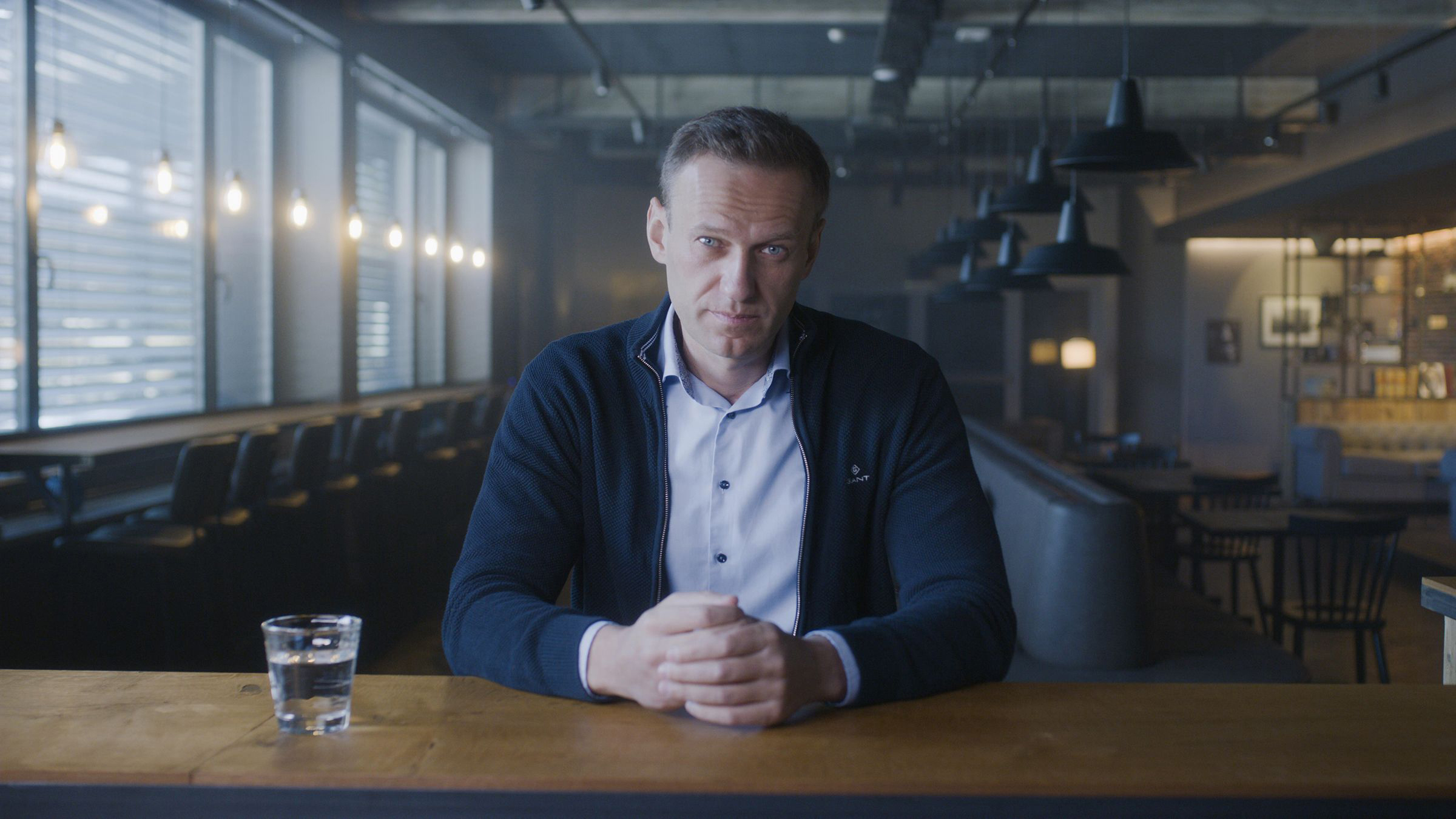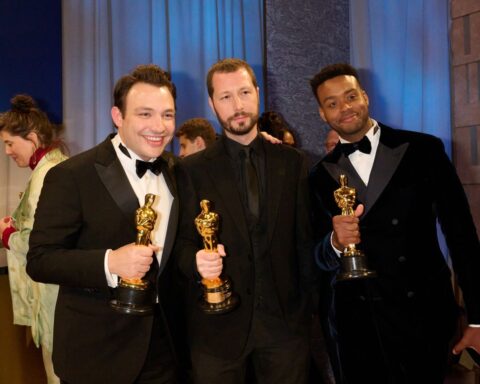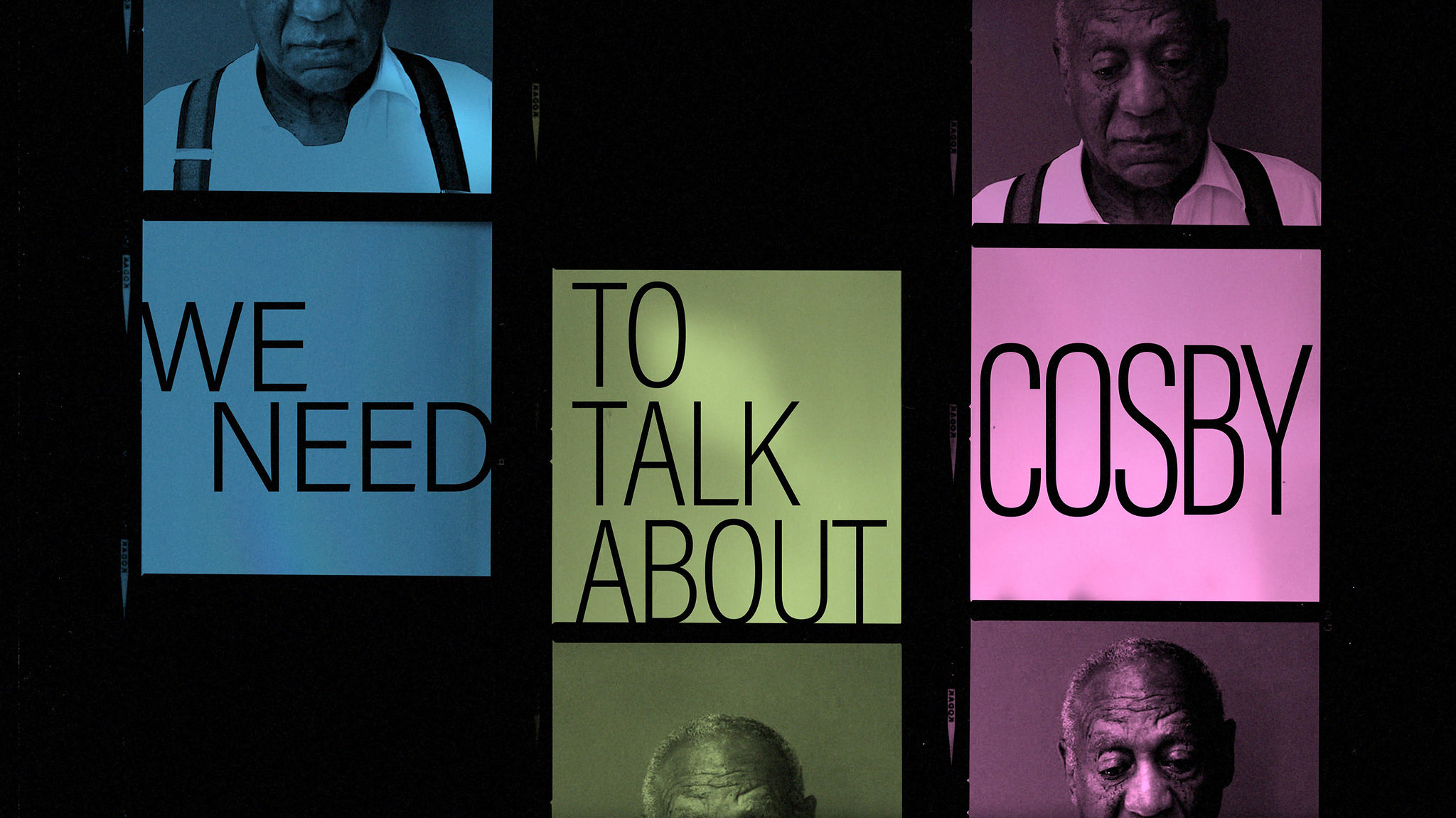Navalny
(USA, 98 min.)
Dir. Daniel Roher
Programme: U.S. Documentary Competition (World Premiere)
As much as I enjoyed fellow Canadian Daniel Roher’s feature documentary debut Once Were Brothers about Robbie Robertson and the Band, I was entirely unprepared to see such blistering talent on display with Navalny. The story of this famed Russian lawyer, activist, social media phenomenon, and foil to Vladimir Putin’s regime could have easily felt like a work of propaganda in service of a rising politician. Instead, thanks to savvy interview questions, bold editing choices by Maya Daisy Hawke and Langdon Page (along with co-editors Aleks Gezentsvey and Canuck Eamon O’Connor), and astonishing access to Alexei Navalny and his family during a tumultuous period, we’re treated to a project that lets one witness globally history being written in every frame.
The core interview with Navalny took place just before he returned to Russia from Germany where he had been recovering following an attempt on his life. The story of a military nerve agent that caused him to nearly die in air, only to land and be treated, was on every news channel back in August 2020. Following that scare were shocking revelations, many of which we see contextualised with contemporaneous footage offered for the first time.
Navalny himself is an inspiring and charismatic figure for many viewers, but not one who can easily be siloed from the murky depths of Russian politics. Roher’s film is strongest when he asks probing questions less to get a rise from his subject for dramatic effect than to cut through the bullshit. The director begins by directly confronting the man about what his legacy may be if he’s killed upon his return. Roher asks directly about Navalny’s connection to hard-right wing, Neo-Nazi groups with whom he’s has been seen at various rallies. The answer is the closest we see to the politician being both evasive and argumentative. He deflects the ramifications of this counter-Putin fascism under the guise of needing to be a leader for all members of Russian society.
Perhaps even more fascinating than the main protagonist is Christo Grozev, chief investigator for the Dutch based publication Bellingcat. As self-described data nerd with near autistic compulsions, his method involves trolling the dark web and paying by bitcoin for everything from flight manifests to hospital records. He uses the very corruption that Navalny is fighting against as a weapon to peer into the very country that brought about the poisoning. There’s an open question raised about whether Grozev is in fact working for the CIA or MI6. However, his comportment, controlled mode of speaking, polyglot loquacity, and general air of confidence make him seem more like a character ripped from a John le Carré novel than a middle-aged man lying to his wife about how much he spends of his personal wealth on gathering intelligence.
Then there’s Yulia Abrosimova, the kind of fierce and powerful Russian wife that’s the stuff of literature. The footage of her storming into the hospital, confronting armed guards with raw tenacity, certainly leans towards both a social media stunt and the pure rage of a loved one fighting a dehumanizing system. Yet the moments of her clear vulnerability and worry, needing to be masked for the greater cause, that show glimmers beyond the headlines: there’s a family here trying as best they can to fight powers outside even their most stringent attempts at control.
Roher’s camera is never intrusive nor is it shy. He captures moments of subtle intimacy as much as the planned interviews and showboating grand pronouncements. The result feels like you’re getting a journalistically nuanced take without falling completely into Navalny’s notable gravitational pull. The doc is unafraid to show us small signs that are not quite as choreographed as the subject’s social media feeds. Throughout the doc, one gets a sense of the man and his motivations, but one also appreciates how the vast mechanisms of history sometimes turn on meetings in small rooms while worrying about how many views a given YouTube video is getting.
Of course, it’s the big stuff that’s the most thrilling. Most notable is an extended scene in which we see contextualized the “prank call” to his own attempted-murderer. The lower-level player in the operation details the cover-up and poisoning in excruciating, almost comical ways. Throughout the scene, there’s a sense that this is too weird for a film and that no one would believe it if it weren’t so true. It’s here that the documentary gets much of its impact. For it’s the very surrealism of this truth that speaks to contemporary Russia, a time where the most obvious thing to do is done so that it can be excused as the work of the ridiculous, that somehow by just doing it all in the light it can even be more easily dismissed as fiction.
It thus makes Navalny all the more vital as a filmed project. It plays out with the drive and energy of a spy thriller, yet its most forceful impact is the sense of truth in the face of the lies it exposes. Even the quiet goodbye in the airport between husband and wife, or how he makes a heart shape in the witness box that she misses, only to draw it on the security glass in a second attempt, would be cloying and ridiculous in a fiction version. Yet here we are—the messiness of life magnified a thousand fold with the milieu of Russian political theatre.
Navalny is truly remarkable in how it both tells this critical story and invites us in to consider the many questions that these events raise. The layers upon layers of near diabolical irony leave one almost giddy. This includes Putin’s on-camera dismissal of Navalny’s actions, described as merely the sabre-rattling of a smaller power to get attention. That’s but one jaw-dropping connection to what’s taking place this very week in the Eastern region of Ukraine, a further indication that the story of this period of Russian history, and the effect of this film’s protagonist, is yet to be written.
Thrilling, intelligent, insightful, and even moving at times, Roher has made the absolute most of his astonishing access to deliver a compelling and crucial documentation of this period of history. If there ever was the right filmmaker at the right place at the right time, this is it.
Navalny premiered at the 2022 Sundance Film Festival.








![] In a reflection of an unmarked storefront is a grayish silhouette of a man using an electric wheelchair. Behind the man is a spectacular red and yellow circus tent.](https://povmagazine.com/wp-content/uploads/2022/01/I-DIDNT-SEE-YOU-THERE-Lead-Still-e1643143444785.jpeg)





